#hortator
Explore tagged Tumblr posts
Text
listening to the morrowind ost all the way thru several times as i work and have a 5 min break by putting up nerevar rising skywind official soundtrack
#and needless to say. luhn silvar hortator azurah'm gah'amer#i tried listening to something else didnt work. im morrowindmaxxing. can someone help me#chixtalks
3 notes
·
View notes
Text

My drawing of Nerever Indoril. Made with mechanical pencil and pen.
#morrowind#tes#tes3#tes 3 morrowind#elder scrolls 3#elder scrolls art#elder scrolls#chimer#nerevar#dark elf#elf#fantasy#tes fanart#dunmer#elder scrolls online#indoril nerevar#hortator#the elder scrolls morrowind#morrowind art#eso#skyrim#traditional art#video games#elderscrollsart#the elder scrolls#elder scrolls morrowind#tesblr#indoril#video game art#elves
219 notes
·
View notes
Text
*to the tune of Hot To Go*
You could name me Hor - ta - tor,
Please make me your HOR - TA - TOR
#morrowind#I have had this game since its original release#and I am only now bothering to play through the main plot#a benefit of this is discovering that hortator scans to hot to go
13 notes
·
View notes
Text

Redoran Hortator (January 12, 2023)

Hlaalu Hortator (March 11, 2023)

Telvanni Hortator (April 24, 2023)
#stellastra's art#OC: Thelasa Indaras#Nerevarine#Hortator#dunmer#The Elder Scrolls#Elder Scrolls#Morrowind#the elder scrolls iii: morrowind#tes fanart#Bolvyn Venim#Crassius Curio#Gothren
300 notes
·
View notes
Text
Been thinking about the psychological warfare of being the Hortator. About how if you're the champion who goes out in front of the army and challenges the enemy to send out the biggest badass they've got, you aren't just Fighting, you're Performing. It's about intimidating the rank and file. It's about making the best and bravest afraid to be called out to fight you next time. In that scenario, fighting without armor is a Flex, if you're good enough to make it work. The art of Nerevar with a high frill (I've chosen to believe that's a mark of Hortatorship) and a loincloth? Yeah, he fought Tongues like that. People who can dragon shout. Breath fire and ice. And he was some dude with a spear. And his whole chest out.
What I'm saying is, the First Council freed Resdanya with the power of Friendship, Loyalty, Staggering Violence, and the Neritties
33 notes
·
View notes
Text
Vivec says unto the Hortator remember the words of Boet-hi-ah
“We pledge ourselves to you, the Frame-maker, the Scarab: a world for us to love you in, a cloak of dirt to cherish. Betrayed by your ancestors when you were not even looking. Hoary Magnus and his ventured opinions cannot sway the understated, a trick worthy of the always satisfied. A short season of towers, a rundown absolution, and what is this, what is this but fire under your eyelid?
Shift ye in your skin, I say to the Trinimac-eaters. Pitch your voices into the color of bruise. Divide ye like your enemies, in Houses, and lay your laws in set sequence from the center, again like the enemy Corners of the house of Troubles, and see yourself thence as timber, or mud-slats, or sheets of resin. Then do not divide, for yet is the stride of SITHISIT quicker than the rush of enemies, and He will sunder the whole for the sake of a shingle.
For we go different, and in thunder. SITHISIT is the start of all true Houses, built against stasis and lazy slaves. Turn from your predilections, broken like false maps. Move and move like this. Quicken against false fathers, mothers left in corners weeping for glass and rain. Stasis asks merely for nothing, for itself, which is nothing, as you were in the eight everlasting imperfections.”
#36 lessons of vivec#sermon 10#vivec#elder scrolls#morrowind#hortator#lorkhan#boethiah#sithis#hist#SITHISIT#wandering spirit#tes#tesblr#the ending of the words is ALMSIVI
24 notes
·
View notes
Text


Luhn-silvar, Hortator.
I am not immune to Morrowind nostalgia
760 notes
·
View notes
Text
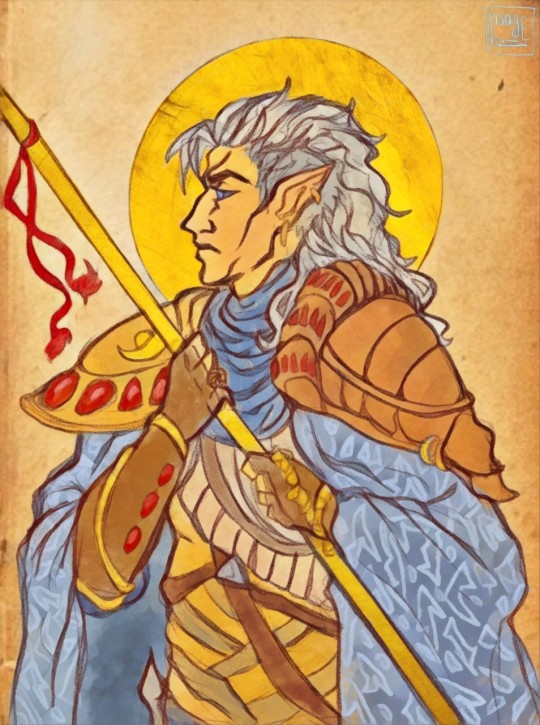
Hortator and draw this again.
#the elder scrolls#indoril nerevar#nerevar#nerevar indoril#morrowind#tes#elder scrolls#hortator#chimer#my art#draw this again
88 notes
·
View notes
Text
ive been thinking about nerevoryn a lot lately and how painfully long it takes them both to Say something and to act on their feelings, it makes me insane
voryn would never ever confess they would keep their feelings locked in their heart only for them to know about, they wouldn't even tell their siblings i think (and that's rare considering how close knit of a family the dagoths are)
but my favourite thought as of late is that nerevar *also* thinks his feelings are one-sided and that he's not "good" enough for the lord of house dagoth. i dont think he really ever sees himself as king, he sees himself as a soldier more than anything. hes not of noble blood like voryn is so how could he ever dare to think of them as anything more than a counsellor and friend? even just being their friend feels like a massive privilege! with how reserved and detached the dagoths are from the southern houses, nerevar really feels privileged that voryn even agreed to work for with him, and this feeling of being privleged only grows stronger as he gets to know voryn better and observe that theyre shut off from all other people yet they choose to share their time with him. they left the comfort of their home and family to work in the south with him. befriending a dagoth is probably the rarest occurrence in all of resdayn and nerevar feels immensely lucky to have done it. aaaARGHH
TLDR; befriending a dagoth is like befriending a cat. a rare yet blessed experience
#txt#nerevar holds a lot of respect for house dagoth and for their lifestyle and their values (everyone else thinks theyre Weird and Creepy)#so to befriend voryn is such a privilege he feels so lucky#also i hc voryn as autistic and house dagoth is very isolated from other house mer so theyre very different in their ways#quite frankly they Do Not Care what happens south of red mountain dhshfhd#so voryn taking such an initiative to LEAVE kogoruhn and go so far down south to mournhold just for the hortator? whoa#theyre the first dagoth to ever do something that drastic#and voryn's decision to get tangled up with nerevar is what brought about their Doom 💔#but thats too sad to think about so ill be quiet now :(#anyway yea i rly like blorbos from my.imagination thank u for reading my thoughts#nerevoryn
17 notes
·
View notes
Text
sermon 13 annotated
These were the days of Resdaynia, when Chimer and Dwemer lived under the wise and benevolent rule of the AMLSIVI and their champion the Hortator. When the gods of Veloth would retreat unto their own, to mold the cosmos and other matters, the Hortator would at times become confused. Vivec would always be there to advise him, and this is the second of the three lessons of ruling kings:
this is the typical introduction to the "three lessons of ruling kings" sermons, of which there are, you guessed it, three.
'The secret syllable of royalty is this: (You must learn this elsewhere.)
as we learn in the previous sermon, sermon 12, the secret syllable of royalty is CHIM.
'The temporal myth is man.
i think this is actually a bit vague. yes, it could refer to "man" as "the human races of tamriel," i.e. nords, cyrods, bretons, redguards, etc. in which case, yeah, they don't live as long as elves do. but this could also refer to "man" as "humanity" in a broader sense, as in all mortal beings. even elves must die of old age eventually. (usually, at least.)
further, i think the overall phrase has a bit of a double meaning. my first impression was, "man is temporal, mortal, short-lived in the grand scheme of things, and therefore less important (mythical) than fact (reality)." however, i think you could take it another way: "man's temporality, his temporariness, his short-lived nature, is a myth, in that myths can be made of him long after his mortal demise." a great man lives long after he dies, because he was great, and made a name for himself through his actions in life.
'The magical cross is an integration of the worth of mortals at the expense of their spirits.
i thought long and hard about this part. i consulted other sources, and didn't care for their analyses, however intentional their conclusions might have been to the original text. i wanted an explanation less out-of-universe, more intrinsic to the setting. and here's what i came up with: the "cross" is the dual nature of anu and padomay, not as two extremes of a single axis, -∞ and ∞, but as two axes forming a plane of potential.

in this case, these two axes of anu and padomay are "an integration" of "the worth of mortals" (padomay giving dynamism and originality via chaos to mortals) "at the expense of their spirits" (the static concept of their being given via anu's order). these two concepts of "dynamism" and "staticism" (not sure that last one is a real word but work with me) are NOT opposites on a single spectrum, but dual spectra conjoined at an origin point. (we'll get back to that later.)
Surround it with the triangle and you begin to see the Triune house.
this part is easy. the triangle is, originally, the three good daedra (azura, boethiah, and mephala), and now the tribunal (sotha sil, almalexia, and vivec respectively). this concept of "houses" we see in multiple contexts throughout the lessons reappears.
It becomes divided into corners, which are ruled by our brethren, the Four Corners: BAL DAGON MALAC SHEOG.
technically, the corners existed prior to the triangle surrounding the cross. but okay, vivec. this is pretty simple, as well: the four corners of the house of troubles, molag bal, mehrunes dagon, malacath, and sheogorath. i'm not sure if you can like, place them in their own quadrants on this graph? if you can think of a good way to do this, let me know.
Rotate the triangle and you pierce the heart of the Beginning Place, the foul lie, the testament of the irrefutable-for-a-span.
here's the origin point! i'll be honest, i don't know what vivec means by "rotate the triangle." what does that even mean…….just spin it forever and ever until it's a circle? maybe… who can say! the origin point of the graph, "the Beginning Place," is…well. several things. it's a kind of "genesis" of two kinds. (this duality is, as you may have noticed, common in this sermon, as well as in the lessons in general.) the initial creation of the aurbis, but also the Convention which settled it into its current state. the initial conception by lorkhan is a "foul lie" in that he supposedly tricked his fellow et'ada into creating it, thereby trapping them within it. the Convention is a "foul lie" in that it designates auri-el as the chief of the aurbis, the origin of time itself.
"the testament of the irrefutable-for-a-span" is the kalpa, the cyclical period of time when the aurbis, the world as we know it, holds steady. it's irrefutable in its reality, its realness. but only "for-a-span"; it cannot hold forever.
this "origin point" serves a dual-dual purpose as being a representation of not CHIM itself, but the realization that brings about CHIM: the gnosis of the nature of the world.
Above them all is the horizon where only one stands, though no one stands there yet. It is proof of the new. It is the promise of the wise.
this refers to a concept which i don't think is ever referred to in-game (unless eso has proven me a liar once again) called "amoranth." amoranth is kind of like super CHIM: if CHIM is the gnosis that the world is the dream of anu, then amoranth is supplanting anu as the new dreamer of a new dream. this is something explored in kirkbride's C0DA, if you're interested.
Unfold the whole and what you have is a star, which is not my domain, but not entirely outside my judgment.
you might imagine this refers to almalexia somehow, since her domain is the stars. but given what we know about the sharmat, dagoth ur, from sermon 15, it's safe to say this is about him. generally speaking, you could say "the stars" is ayem's domain, whereas "a star" probably refers to the sharmat and the heart of lorkhan. vivec knows he cannot understand or master what the sharmat understands and masters, but he can yet judge it as false, nonetheless.
The grand design takes flight; it is transformed not only into a star but a hornet.
i'm not 100% sure what i think is meant by "hornet" here. here's my best guess: the grand design (the aurbis) takes flight (becomes active), and it is buzzing about with life (a hornet).
The center cannot hold. It becomes devoid of lines and points. It becomes devoid of anything and so becomes a receptacle. This is its usefulness at the end. This is its promise.
as a result of the hornets flitting about the world, the origin point at the center "cannot hold". this line, "the center cannot hold," is a direct reference to a line from william butler yeat's poem "the second coming," which i don't know much about beyond that. the title of the poem is evocative, of course, of the second coming of christ, the apocalyptic end of all things.
i believe "devoid of lines and points" COULD refer to the ongoing collapse of towers in tamriel, with "lines" being "towers" and "points" being "stones." without these reference points to tie down meaning on nirn, it becomes "devoid of anything," nearly meaningless, and therefore "a receptacle," a vacuum of meaning waiting to be filled.
'The sword is the cross and ALMSIVI is the Triune house around it.
confirming that the triangle is the tribunal, but also claiming that the cross and the sword are identical. refer to my post on sermon 23, the scripture of the sword. this also connects to the theme of duality in this sermon.
If there is to be an end I must be removed. The ruling king must know this, and I will test him. I will murder him time and again until he knows this. I am the defender of the last and the last. To remove me is to refill the heart that lay dormant at the center that cannot hold.
i think most of this is self-explanatory. the ruling king in these sermons refers both to nerevar and nerevarine. vivec "killed" nerevar and has persecuted the nerevarine cult, "killing" each attempted incarnation as they come. vivec is supposedly trying to teach nerevar (rather, his reincarnating soul) that he is an obstacle to the conclusion (said conclusion being the defeat of the sharmat and the "refilling of the heart", a.k.a. lorkhan's heart, now taking on the symbology of "the center that cannot hold") that must be defeated in some way in order to bring about the conclusion. in our story, vivec is defeated by proof rather than combat (canonically, at least). he is "the defender" until the truth he defends can no longer be denied.
I am the sword, Ayem the star, Seht the mechanism that allows the transformation of the world. Ours is the duty to keep the compromise from being filled with black sea.
okay, i know i said that "star" singular almost always refers to the sharmat/heart of lorkhan, with "stars" referring to ayem and her domain, but this is like, the only exception in the lessons. all other "star" references are either sharmat/heart or literal stars/astronomical objects.
"the compromise" here is aurbis, a blending of order and chaos, staticism and dynamism, anu and padomay. "the black sea" is the pure void of padomay outside the aurbis.
'The Sharmat sleeps at the center. He cannot bear to see it removed, the world of reference. This is the folly of the false dreamer. This is the amnesia of dream, or its power, or its circumvention. This is the weaker magic and it is barbed in venom.
"the center" ("that cannot hold") here refers to both meanings of the center, as both the irrefutable genesis of reality and the heart of lorkhan specifically. the sharmat wants a "world of reference," a world of false reality (for a "false dreamer", since anu is the true dreamer) to rule over. he forsakes the truth for a lie, "the amnesia of dream," and thereby finds a power, albeit a "weaker magic" that is "barbed in venom," in downsides.
'This is why I say the secret to swords is the mercy seat. It is my throne.
we've heard this before, from sermon 11: "The secret of weapons is this: they are the mercy seat."
what's the "mercy seat?" well, biblically, it's the lid of the ark of the covenant, where God's divine presence dwelt. but the bible doesn't exist in tamriel, so what would it mean within the setting's context?
well, we know that ayem is most commonly associated with "mercy" as a concept. but i don't think this really refers to her. vivec sees violence as his own kind of "mercy," as both as a coup de grâce, or mercy stroke, to put down the wounded after battle with the victor, but also a "sharpening" of the wounded into the victor. as God Himself, free from the restraints of luck, vivec decides the victor…and he decides when the defeated may become the victor later, after becoming stronger in their defeat. this plays into the themes of trauma and recovery in the lessons.
I am become the voice of ALMSIVI. The world will know me more than my sister and brother. I am the psychopomp. I am the killer of the weeds of Veloth.
by writing the lessons vivec becomes "the voice of ALMSIVI," the one willing to tell the truth, however couched in poetry and mystery as he is inclined to do so. "the world will know" him more than his "sister and brother," both because canonically he survives them both, but also due to his religious significance in the tribunal temple. almalexia is certainly an important figure in the temple, even walking among her children as their mother, but vivec contributes more to the spiritual lives of their devotees through his writings.
a "psychopomp" is a figure in a mythology who carries the dead to their afterlife destination; the ones you've most likely heard of are the egyptian anubis, the greek charon, and the norse valkyries. vivec claims to carry the "weeds of Veloth" directly to the afterlife by killing them personally.
Veloth is the center that cannot hold. Ayem is the plot. Seht is the ending. I am the enigma that must be removed. These are why my words are armed to the teeth.
another "center that cannot hold"???? you betcha. vivec sees veloth (here referring to morrowind itself, not to the prophet) as the stage for the center's "unfolding," seeing as it was where the heart of lorkhan landed, and where gods (tribunal, dagoth ur, numidium and thereby talos) were made (and eventually unmade).
ayem is the plot because her anticipation is the prince of plots, boethiah. seht is the ending because his anticipation is azura, prince of (dawn and) dusk. vivec is an "enigma," a kind of puzzle that the nerevarine must solve in order to know truth, in order to defeat the sharmat and close this treacherous chapter of history. but what good's a game without stakes? an "enigma" without "words…armed to the teeth"?
'The ruling king is to stand against me and then before me. He is to learn from my punishment. I will mark him to know. He is to come as male or female. I am the form he must acquire.
the nerevarine ("the ruling king") stands against vivec as apocryphal messiah of the cult, then before him when vivec can refute them no more. they learn from vivec's "punishment," which is, again, twofold: both the punishment of the cult and dissident priests, and also the punishment vivec endures, as a lonely god. the nerevarine's form doesn't matter ("male or female"), because vivec's didn't matter.
'Because a ruling king that sees in another his equivalent rules nothing.'
if you don't inherently see yourself as better than everyone else, you cannot be "a ruling king." this is why the nerevarine must prove themselves worthy to defeat the sharmat:
"Hortator and Sharmat, one and one, eleven, and inelegant number. Which of the ones is the more important? Could you ever tell if they switched places? I can and that is why you will need me." - Sermon 11
by which vivec again asserts that he, as God Himself, is the decider of fate, not chance. vivec fills the role of observer in the enantiomorph between hortator and sharmat, nerevar and voryn, nerevarine and dagoth ur.
This is what was said to the Hortator when Vivec was not whole.
remember sermon 12, the pomegranate banquet. vivec has lost his "feet" and his "head" to "molag bal," "the king of rape." lots of quotations there because none of that is literal. vivec was raped (not literally by molag bal) and lost his sense of self, his sense of self-worth. he has not yet "repaired" himself, brought himself back together from the trauma he endured.
i'm not sure if vivec actually said anything like this to nerevar during this time. he could have been trying to put up a facade, to pretend nothing was wrong, doing what he usually does in advising the hortator. or this could just be a literary contrivance, putting this sermon here. it's hard to say.
and as always,
The ending of the words is ALMSIVI.
#tes#tesblr#morrowind#36 lessons of vivec#vivec#nerevar#nerevarine#hortator#dagoth ur#sharmat#almalexia#sotha sil#vehk#seht#ayem#almsivi#tribunal temple
17 notes
·
View notes
Text
cw: blood, violence, character death (all the First Council staples)
“Voryn,” he gasps, leaning on his spear. If he is to groan like a wounded guar in his grief, he must do it now, here, and bring a brave face back to his people; they will look for certitude in it, for the calm strength that comforts them. His wife is wise to wear a war-mask. “Voryn.”
Thrown down in the silt, with the spear in him, his councillor does three things: laughs, and chokes bloodily on the laugh, and smothers his face in his sleeve. The Hortator bears down on the spear until the death-rattle reddens the silk. A thousand times and more, he’s done this. Once a man is down, it is mercy. He twists the spearpoint free, and it is done.
“Hortator!” someone cries, and catches him.
He’s heavy, the Hortator; heavier, in all this crushed chitin. He sags from the frightened arms and thuds to one knee beside Voryn, in the silt. That’s all right. He’s not down, yet.
“Hortator.” Ineffectual hands scrabble, shaking, at the straps of his breastplate. He wonders where Alandro is. Alandro can have his armor off in minutes. “You’re hurt. That crawling beetle, that traitor—”
He’s only seen Nibens, conscious of the dignity of their carrion, cover their faces in death. Voryn’s vain enough to concern himself with such. Just watch him eat a pomegranate—with a little spoon, useless for anything else, imported from Nchardak for the purpose.
“Voryn,” he rasps, as if Voryn might get up. Sweat trickles down his face. His ears ring. Around them the spinning chamber shimmers with a heat that rolls like flame, like fever, beneath his roasting skin.
“Hortator.” It is Alandro, he realizes—Alandro, all along. He wonders why Alandro’s groping at him like a blind man, weeping. “Nerevar.”
* * *
“Nerevar, this,” says Surriwit, supercilious as ever. She’d be less fond of the man if he weren’t. “Nerevar, that. As if he did anything but die.”
Aloud, he says this, while coiling trama roots in an Urshilaku yurt. The Nerevarine almost laughs at the look on Kurapli’s face.
“You think it of no account, then,” she says, laying a forestalling hand on Kurapli’s in the soaking-trough, “that I dream of him, not the Sharmat, so long as I wear his ring?”
“Correlation is not causation.” Surriwit thumps his tail on the packed-earth floor, puffing up ash. “Perhaps you have indigestion.”
“Kur-Hansar,” says Kurapli, sharp as the dagger at her belt, “where do you find these blasphemers?”
The three are—ostensibly—weaving baskets. Kurapli is the one with cunning hands; Wit has the wit to strip and store tomorrow’s trama, grumbling at every splinter, and the Nerevarine is good for nothing but soaking the cured roots until they’re soft. She keeps at it with good cheer, with her good hand. On her finger, flashing in the water of the trough like a speck of twilight, glints the Moon-and-Star.
Pity Dagoth Ur, the ghost of Peakstar had whispered in that cave: a voice in the dark, small and drifting like the dust. He is evil, and all he puts his hand to is befouled—but he began in brightness and honor. The cause of his fall was his loyal service to you, Nerevar.
She has not dreamed of his loyal service. She’s dreamed of the death-wound he gave Nerevar, before Nerevar repaid him in kind. Three times true, her foretold arse—
“Who’s to say,” says Wit, with a douce look that seldom bodes well, “that he’s not in the ring?”
The Nerevarine grins. “Who?”
“Nerevar.”
“Nerevar is not in a bauble,” snaps Kurapli, tangling her weave. “He has come again in spirit and flesh, reborn in the Nerevarine, to lead us to victory and—and—s’wit!” She throws up her hands. “I have no words for you. Because of you, I have ruined this basket.”
“Which is more credible?” Wit snaps back, bristling. His patience for matters of prophecy is always short. “That she’s the reincarnation of a First Era warlord”—he turns, feathers afluff, to the Nerevarine—“or that a ring you found in a cave was enchanted with a famous soul, long ago, and now it’s giving you dyspepsia—”
With an exasperated cry, Kurapli splashes him with half the contents of the trough.
Wit stares at her, rigid, dripping. Their host glowers back at him. The Nerevarine looks from one to the other, lifts a brow, and leans forward to intervene—but a snort from Kurapli breaks the silence first, and then Wit’s shaking himself off, grumbling again, flicking droplets at her across the trough like a priest of the Nine who’s dipped too deep into the font.
“Harridan,” he mutters without much heat. The water must have doused it. The Nerevarine suspects she’s no closer to understanding the man than she’d been when she met him, that miserable morning in Gnaar Mok. “Ingrate.”
“Go and dry in the sun,” says Kurapli, waving him off. “Go, go. Blasphemer. Sorcerer. My Airan will bring you lunch.”
It was for setting the bones of this child, when a fall from the cliffs had broken him almost to the death, that the Ashkhan had named Wit clanfriend. The Nerevarine, named clanfriend for reasons less laudable, smiles and draws her hand from the trough.
She feels Kurapli’s eyes on her like an itch. “May I see it?”
The ring, she means. The Nerevarine holds out her dripping hand: heavy, hard, as utilitarian as the rest of her. Clean, at least, from the water.
Kurapli’s hands, raw and cracked from their labors, turn her own this way and that. The Moon-and-Star gleams in the unpretentious light of the cookfire, where the ash yams are roasting in the pot. “And it brings you dreams?”
“Or dyspepsia.”
“Stupid.” Most eyes flick in startled terror from the Nerevarine’s smiling face. Kurapli, her hands and face steady, meets her gaze and holds it: rarest of women, ruining baskets in this yurt. “What do you believe?”
She’d expected no such question. Still, she must answer. She weighs her choices: what is true, what is righteous, what this widow wants to hear.
Then she nods, satisfied. “That I’m not down, yet.”
43 notes
·
View notes
Text

Nerevar returns to remove the false gods that block out the dawn
31 notes
·
View notes
Text

Curatar's dual with Bolvyn Venim while being named hortator
#note the Nerevarine tokens from the ashlanders on his Pauldron#morrowind#elder scrolls#tesblr#tes art#curatar#Nerevarine#my characters#my art#anahitdoesart
171 notes
·
View notes
Text
Crassius Curio: Would you kiss me to become Hortator?
Nerevarine: Could I pay you to not?
#asdfghjkl crassius said 'just one little thing before i support you as hortator'#and i out loud said 'GOD crassius if you ask me to suck your dick i'm LEAVING'#and to be fair to him. he didn't. so.#honestly he's such a weird slimy little lech it somehow loops right back around to being charming#somehow i am genuinely fond of this perverted menace of a man. wild#morrowind#by apples#crassius curio
7 notes
·
View notes
Text
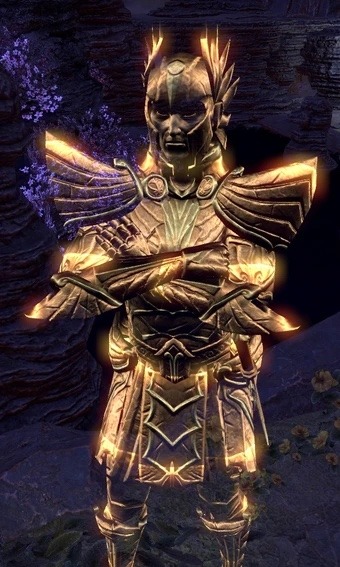
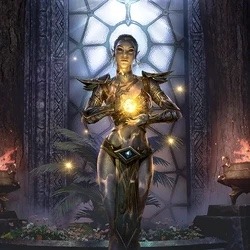
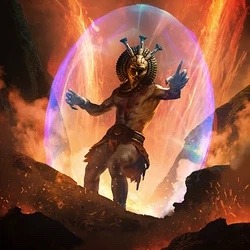
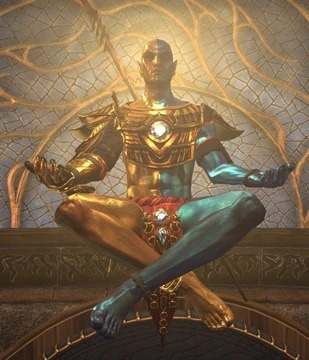
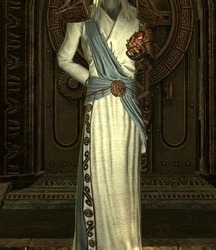
#tes#the elder scrolls#nerevar#indoril nerevar#amalexia#voryn dagoth#dagoth ur#vivec#sotha sil#hortator
5 notes
·
View notes
Text
Indoril Nerevar: Brr, I’m cold!
Sotha Sil: Go stand in a corner, kid.
Indoril Nerevar: . . . why?
Sotha Sil: *jazz hands* Because corners are 90 degrees!
Indoril Nerevar: Oh! Ha. Ha. Ha.
#hortator is not amused#nerevar indoril#indoril nerevar#sotha sil#first council#almsivi#tribunal#nerevar queue and star#incorrect quotes#incorrect elder scrolls#incorrect morrowind quotes#tes#the elder scrolls#morrowind#the elder scrolls iii: morrowind#source: tumblr
56 notes
·
View notes